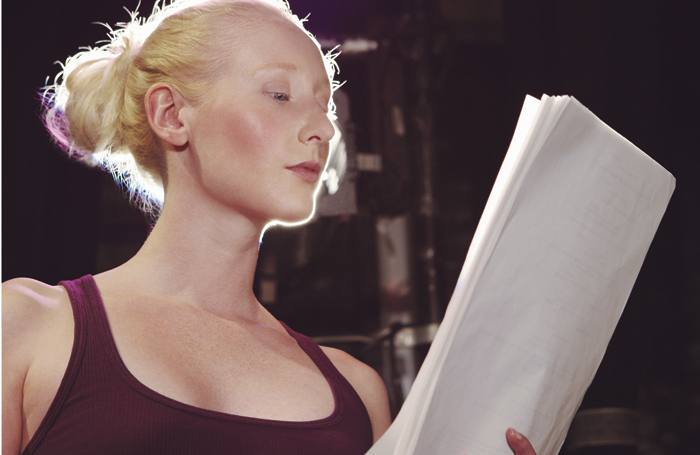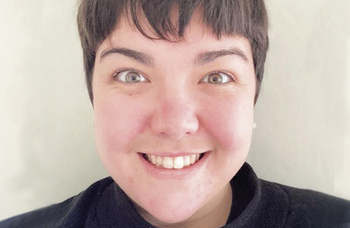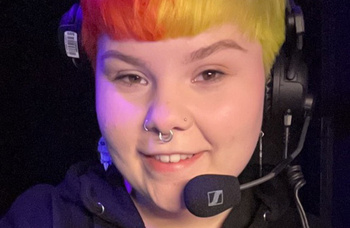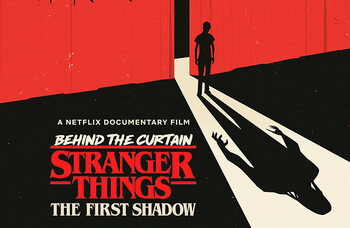What's the secret to getting an agent?
You’ve managed to find funding to help you in your dream of being an actor. You’ve scrimped and saved through drama school while holding down two bar jobs in order to be an actor. And now within six months of becoming an actor, you have only one objective. To get an agent.
Leaving drama school in the late 1970s, our priority was different. We were focused on getting jobs. We did a showcase for agents, but the fact we had not a glimmer of interest – I didn’t actually acquire an agent for four years – did not deter us in the least. There were letters to be written to repertory theatres and there was work to be found.
Today’s climate is different. Just getting hold of information about decent castings can be a day’s work in itself and when, post-drama school, you are spending every available hour trying to survive, particularly if you have decided to live in London, having an agent who can work on your behalf seems to be vital.
So just how easy is it to make that journey from talented, promising young actor to client? A drama school, if nothing else, should be a bridge into the profession. How does it help its graduates choose an agent?
Trevor Rawlins, head of acting at Guildford School of Acting, says: “We encourage students to research agents carefully. We start that process in the second year. They spend the summer before third year creating their ‘hit list’ of agents they want to target, and research how they are going to go about trying to make contact. We work with them as the third year starts, helping them hone their strategy.”
Soapbox: An open letter to all actors, from a (hard) working agent
This all sounds great and is exactly what any good drama school should do. As a graduate, you have no doubt been thinking about the same thing since very early in your training.
Euan Shanahan, a final-year student at Bristol Old Vic Theatre School, agrees. “When you start in the first year, there is always a background hum of third years talking about agents and who’s getting signed to who. You don’t notice it that much to begin with, but as you progress through the second year, everything gets more industry-focused and you start to tune in more. By the time third year comes along, you feel fairly familiar with the process. We had professional development classes at the start of last term to discuss sending agent emails and marketing ourselves, which were really useful, but the most helpful thing has been talking to mates who graduated last year and the year before.”
Getting advice from a variety of sources is key. The world of a drama school can be insular, no matter what its reputation. Spotlight is also good at offering advice on agents, and talking to other actors who are represented by the agency you are thinking of signing to is very valuable.
Drama schools are keen for graduates to have representation when they leave. It’s a good selling point for the school. But monitoring the quality and suitability of the agent that students sign with is more difficult than it might seem.
I know of a young actor who is doing very well now five years out of a top-flight drama school. He has spent several years with the Royal Shakespeare Company and the National Theatre following the classical career that was always his dream, yet his drama school let him sign with an agent who specialised in musical theatre. In fact, as he told me: “They encouraged me to sign with them as it was the only approach I had after my showcase.”
There is a school of thought that even a bad agent is better than no agent at all. “Even if you’re just using them as an answering service,” as casting director John Cannon told me.
But I’m not so sure. Given that it’s very hard for agentless actors to get good casting information out of Spotlight, it can be hard to pursue leads without one. Spotlight says that it does try to encourage casting directors to circulate all information, but as many actors will suggest themselves for virtually anything, why would a casting director submit to being deluged with a mountain of inappropriate submissions? Agents have reputations to maintain and the good ones are very keen to make only the most suitable of suggestions for roles on offer. That said, there are a lot of agents who don’t.
It can be difficult if you have a lead role early in your final year and it attracts agent interest. Do you sign there and then, or do you hang on to see if something better comes along?
An exceptionally talented young actor who I’ve just had the pleasure of working with did exactly that. Spotted by an agent in the first show of her final year, she was actively encouraged by her drama school to sign up. This meant that by the time her school showcase came along, she was listed in the brochure as “represented” and no other agents made offers. The agent she signed with had a very particular career path in mind for her – not the one she saw herself taking – and she realised she was stuck with the wrong person. It’s something she has remedied, but she regrets jumping for the first agent to come along. “Don’t be afraid to ask questions,” she told me. “And don’t be afraid to say: ‘I am interested, but I’m not sure that I’m ready at this moment’.”
And what do the agents themselves think of this deluge of graduate applications that is currently arriving on their desk? Kevin Brady of AHA Talent says: “If the drama school is doing its job properly, I’m not sure how much need there is for everyone to write a whole load of letters. Putting a stamped addressed envelope in is not a good investment when there’s nothing for the agent to say. We do get all the brochures and we do try to cover people.”
Jeanette Hunter of Shepherd Management adds: “I prefer to meet a student before I attend a show. I know from a meeting whether I’d be interested in seeing their work and if the fit could be right for me. I’m very deliberate in my decision to represent a graduate. It’s a very different way of working to the way we work with established clients.”
Showcases are a necessary evil. Same old pieces or pale imitations of recent West End performances don’t impress. Brady says: “I’m looking for that different energy that makes you sit up: someone being bold, and hopefully something lighter that shows some humanity.”
So, here are five tips for improving your chances of becoming a client:
1. Don’t send hundreds of copies of the same letter to lots of agents. Target individual agents and tell them why you want to be with them. Who are the clients they already have? No one who clashes with you, hopefully.
2. “Don’t send emails at 2am, regardless of how in the zone you feel. They will almost always be totally indecipherable. Starting an email with ‘To Linfy King’ isn’t going to do you any favours.” – Shanahan
3. If the agent does show any interest in you at your showcase, what do you have for them to see you in afterwards? If nothing is planned, then start to sort something out. It is unlikely that an agent will take you on as the result of a two-minute showcase speech.
4. Ask questions. Just like any relationship in your life, talk about what you like. If the agent just expects you to sit at the end of the phone and wait, will that work for you? How do they feel about your part-time job to feed yourself? Some can be remarkably unrealistic about your need to earn money.
5. Take advice. Not just from your drama school, but from colleagues, peers, alumni and professionals you have contact with. Remember, it has to work for you. As Rawlins says: “In the end, you need to be in charge of the actual decision. It’s your career, after all.”
Opinion
Recommended for you
Advice
Recommended for you
Most Read
Across The Stage this weekYour subscription helps ensure our journalism can continue
Invest in The Stage today with a subscription starting at just £7.99
 Paul Clayton
Paul Clayton











